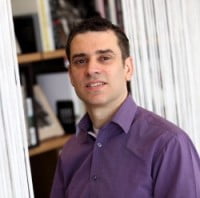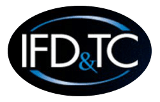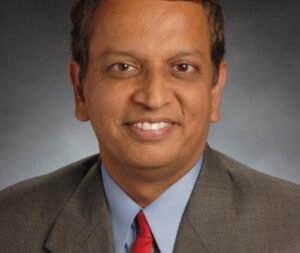| Sunday May 17, 2015 | |
| 12:00pm-7:30pm on Sunday | |
| Check-In Location: Lobby Look for the IFD&TC registration table in the lobby, and be sure to check in and pick up your conference materials. | |
| Session 1 | 6:00pm-7:30pm on Sunday |
| 1A – All | Small Shop Roundtable Roundtable Discussion Location: Crystal Ballroom IV Facilitator: Martha Belanger, University of New Hampshire Session Focus: This session to kick off the conference is part meet and greet and part open discussion on the issues and challenges facing small shops. Come along, meet other small shop folks, and discuss the issues that are most important to you. |
| Session 1 | 7:30pm-9:30pm on Sunday |
| 1B – All | Welcome Reception Location: Pier Top IFD&TC Organizers past and present want to welcome you to the conference. Please join us after dinner for light food, a cash bar, and an informal time of visiting with old and new friends. Complimentary beer and wine will be served from 7:30pm to 8:30pm |
| Sunday Evening | |
| Hospitality Suite Location: Tarpon Parlor Room 2122 Everyone is welcome! Please join us in the Hospitality Suite after sessions and events are over for the day. It’s a great place to visit with others, and a relaxing way to close the day. | |
| Monday May 18, 2015 | |
| 7:30am-9:00am on Monday | |
| Continental Breakfast Location: Garden Terrace Continental breakfast served. | |
| Registration Continues Location: Crystal Atrium | |
| Session 2 | 9:00am-10:15am on Monday |
| 2A – All |  Trends in Web Surveys and Online Panels Location: Crystal Ballroom I and II Facilitator: Hubert Hamer, National Agricultural Statistics Service Mario Callegaro Web surveys and online panels are still relatively new data collection methods in comparison to mail, face to face, and telephone interviews. At the same time they are changing very rapidly. In this keynote speech Mario will look at where the industry is going and what are the challenges faced by survey and opinion researchers, survey shops, and companies dealing with client requests. Mario Callegaro is senior survey research scientist at Google, London. He focuses on measuring customer feedback and consults on numerous survey and market research projects in terms of survey design, questionnaire design, sampling, and reporting. |
| 10:15am-10:45am on Monday | |
| Monday AM Break Location: Crystal Atrium Snacks and beverages served. | |
| Session 3 | 10:45am-12:00pm on Monday |
| 3A- All | Special Q&A Discussion on Internet Panels with Mario Callegaro Roundtable Discussion Location: Crystal Ballroom I Facilitator: Jennifer Dykema, University of Wisconsin Survey Center Session Focus: This is a special Q&A session regarding Internet Panels with Mario Callegaro. If you are interested in the issues Mario touched on in his invited address, please join us for additional discussion with Mario and your colleagues. |
| 3B – Field | Recruiting Child and Adolescent Participants Presentation & Discussion Location: Crystal Ballroom II Facilitator: Tara Piche, University of Wisconsin Survey Center Session Focus: Exploring special considerations for collecting data with child and adolescent participants in different settings.
|
| 3C – Field | Managing and Sustaining Your Survey Center Roundtable Discussion Location: Crystal Ballroom III Facilitator: Kurt Johnson, Penn State Survey Research Center Session Focus: In this roundtable, we will explore effective approaches to developing management skills in your staff, tools and strategies for marketing your center, changing your center’s image, building and sustaining new client relationships, standardizing procedures across programs. |
| 3D – Field | Things That Make Data Collection Hard Presentation & Discussion Location: Crystal Ballroom IV Facilitator: Lindsey Witt-Swanson, University of Nebraska Bureau of Sociological Research Session Focus: Challenges with consent, cooperation and recruitment.
|
| 3E – Tech | Compliance, Security and Testing of Web Surveys Presentation & Discussion Location: Mariners Facilitator: Bill Connett, UM-Survey Research Center (UM-SRC) Session Focus: Use of web surveys as a mode of survey data collection is growing in popularity each year. Along with this growth come concerns about web survey security, ways to test surveys for different devices and platforms, and complying with new and changing regulations. Come and learn more about this rapidly changing mode.
|
| 3F – Tech | Applied Technologies Presentation & Discussion Location: Pier Top Facilitator: Brian Harnisch, University of Wyoming Session Focus: This session will include presentations on the many ways that technology impacts our work in survey research. From the modes and devices used to collect data, to the way we manage our centers.
|
| 12:00pm-1:00pm on Monday | |
| Monday Lunch Location: Windows on the Green Random-digit dining. Lunch provided. | |
| Session 4 | 1:30pm-2:45pm on Monday |
| 4A – Field | Using the Project Management Approach Panel Discussion Location: Crystal Ballroom I Facilitator: Patrick Kiser, Battelle Memorial Institute Session Focus: The philosophy and consequences of moving to a more formalized Project Management approach (PMI or others) with survey centers, changes in the approach to survey management (i.e. expert in technology vs. expert in survey for some projects), dealing with all of the day-to-day issues.
|
| 4B – Field | Training for Anthropometric and Biomarker Data Collection Presentation & Discussion Location: Crystal Ballroom II Facilitator: Richard Hull, University of Nebraska Bureau of Sociological Research Session Focus: Interviewer training approaches for anthropometric and biomarker data collection.
|
| 4C – Field | Budgets, Contracts, and Financials for the Survey Shop Roundtable Discussion Location: Crystal Ballroom III Facilitator: Rita Koontz, Washington State University Social & Economic Sciences Research Center; Bob Lee, Emeritus, University of Michigan Session Focus: Bring your questions and ideas to share as this discussion will be tailored to the attendees needs. We’ll have experts to discuss contract types, building and tracking budgets/costs, handling incentives, preparing for an audit and the special challenges of operating in the academic setting. Whether you are a start-up survey shop or an established center with many years experience this session will help broaden your tool kit for bringing in projects and tailoring to your clients and administrators need for financial information. |
| 4D – Field | Foiling Sisyphus: NORC’s Initiatives Towards Addressing the Increasing Difficulty of Field Work Panel Discussion Location: Crystal Ballroom IV Facilitator: Vicki Wilmer, NORC at the University of Chicago Session Focus: NORC at the University of Chicago will present a cross-project panel to discuss the challenges, successes, and lessons learned across four major in person data collection projects that were fielded between 2012 and 2014.
|
| 4E – Tech | Focused Tech: Case Management Systems for Small/Medium Size Organizations Panel Discussion Location: Mariners Facilitator: Eric White, University of Wisconsin Survey Center Session Focus: UWSC will present on the history and evolution of their field case management system, tracking its evolution from simple to complex. They will discuss the applications and programming languages used. Similar functionality could be created using other programming languages and applications, allowing other organizations to leverage the expertise they may already have using software that differs from UWSC’s preferred software.
|
| 4F – Tech | Data Management and Analysis Tools Presentation & Discussion Location: Pier Top Facilitator: Andrew Hupp, UM-Survey Research Center (UM-SRC) Session Focus: Presenters explore ways to make use of data management and analysis tools to increase productivity, reduce non-response, and manage field staff.
|
| 2:45pm-3:15pm on Monday | |
| Monday PM Break Location: Crystal Atrium Snacks and beverages served. | |
| Session 5 | 3:15pm-4:30pm on Monday |
| 5A – Field | Refusal Issues Presentation & Discussion Location: Crystal Ballroom I Facilitator: Rob Schultz, University of Wisconsin Survey Center Session Focus: When is a “no” a “NO!”? How do we convince respondents to participate without harassing them? Are there lines that should not be crossed with respondents regarding persuasion, cajoling, urging, and convincing participation? How does respect for the respondent play into getting acceptable response rates? How can you avoid getting a “no”? How can you turn a “no” into a “yes”?
|
| 5B – Field | Challenges of Restricted Access Buildings in Area Probability Surveys Panel Discussion Location: Crystal Ballroom II Facilitator: Jennifer Parsons, UIC Survey Research Laboratory Session Focus: Area probability surveys in urban settings face the difficult task of gaining access to sampled housing units in restricted access buildings (RABs), defined as multi-unit buildings in which a barrier restricts access to individual units. This panel will explore ways to gain access, and improve response rates.
|
| 5C – Field | Cross-Cultural and Cross-Community Issues Presentation & Discussion Location: Crystal Ballroom III Facilitator: Terry O’Connor, National Agricultural Statistics Service”; Session Focus: Approaches to survey translation, cultural adaptation of survey measures, working with multi-cultural data collection teams, gaining community cooperation, identifying appropriate sampling frames.
|
| 5D – Field | Tracking and Maintaining Contact with Young Adult Respondents Presentation & Discussion Location: Crystal Ballroom IV Facilitator: Janice Larson, Iowa State University Session Focus: Locating and engaging adult respondents.
|
| 5E – Tech | Focused Tech: Using Open-Sourced/Freeware to Build Solutions for Survey Research Workshop Location: Mariners Facilitator: Kevin Tharp, Indiana University Center for Survey Research; Adam Zammit, Australian Consortium for Social and Political Research Incorporated (ACSPRI) Session Focus: Examples and demonstrations of open-sourced/freeware to build solutions for data collection in survey research. This workshop will show you how to use a variety of open-source software to start and finish a web survey from scratch, including questionnaire authoring, sample transfer and cleaning, web survey administration, running statistical analysis, and presenting data visualization. Participants will be provided with access to a demonstration server if they wish to try it themselves during the presentation and throughout the conference, so please bring along a laptop or tablet to join in! Some potential software packages to be demonstrated include:
|
| 5F – Tech | Overcoming Design and Implementation Challenges of the 2014 Health Center Patient Survey Presentation & Discussion Location: Pier Top Facilitator: Sarah Cook, RTI International Session Focus: The audience will have an opportunity to understand the challenges faced by the RTI research team as they construct a large complex health survey administered over multiple languages.
|
| Session 6 | 4:45pm-5:45pm on Monday |
| 6A – All | Business Meeting (All Attendees) Location: Crystal Ballroom III Everyone is encouraged to attend the IFD&TC Business Meeting. Even if this is your first year attending the conference, your participation is welcome. The Business Meeting is where we discuss the future of the IFD&TC conference, elect new organizers, and learn about the location of future conferences. |
| 7:00pm-10:30pm on Monday | |
| Monday Evening Event Participation Location: Royal Palm Lawn It has been a number of years since IFD&TC has hosted a Monday evening (after dinner) event. This year, the hotel lawn and terrace are well-suited for a tournament. You may know the game as cornhole or bean bag toss – perhaps even “bags” if you’re into the whole brevity thing. Anyone can play, the more spectators the merrier, and a discounted cash bar will be nearby. You may pick your teammate or we can match you up, and monetary prizes will be won. We will follow-up with more information about forming teams after registration has closed. Sign-in and practice at 7:00pm – 7:30pm. Please register for this event here if you might be interested in participating in the tournament. This is not a commitment, just a way for us to gauge interest. | |
| Monday Evening Event Spectating Location: Royal Palm Lawn Even if you would prefer not to play in the bean bag tournament, but think you would like to come socialize and cheer on your favorite players, please sign up here so we know how many people to expect. | |
| Monday Evening | |
| Hospitality Suite Location: Tarpon Parlor Room 2122 Everyone is welcome! Please join us in the Hospitality Suite after sessions and events are over for the day. It’s a great place to visit with others, and a relaxing way to close the day. | |
| Tuesday May 19, 2015 | |
| 7:30am-9:00am on Tuesday | |
| Continental Breakfast Location: Garden Terrace Continental breakfast served. | |
| Session 7 | 9:00am-10:15am on Tuesday |
| 7A – All |  “That… Is the Right Question” Location: Crystal Ballroom I and II Facilitator: Orin Day, RTI International Sam Adams Imagine having a WATSON on your shoulder as you go through your day. Your own personal WATSON, one that knows your likes and needs, one that protects your personal information as only IBM can. It will give each of us access to the most power analytic insights available anywhere, right when we need them most, helping us make better decisions and more efficient use of our time and money, helping each of us discover and reach our fullest potential. But training a WATSON system today is a very time consuming and difficult process. There are two keys to success: a large body of textual information about the domain of interest, and a sufficiently large set of answered questions to bootstrap the learning process. Your discipline probably knows better than any other the value of a good question, as well as the challenges of designing them and gathering answers. To achieve this vision of WATSON-on-my-shoulder, thousands of WATSONs must be trained on hundreds of subject areas. This talk will explore a potential fusion of our disciplines, how we can work together to reach this goal. |
| 10:15am-10:45am on Tuesday | |
| Tuesday AM Break Location: Crystal Atrium Snacks and beverages served. | |
| Session 8 | 10:45am-12:00pm on Tuesday |
| 8A – Field | Approaches to Operational Issues Presentation & Discussion Location: Crystal Ballroom I Facilitator: Tiana Pyer-Pereira, University of Chicago Survey Lab Session Focus: Unique approaches to protocol design including issues related to sample design and partnerships.
|
| 8B – Field | Approaches to Client Management Roundtable Discussion Location: Crystal Ballroom II Facilitator: John Stevenson, University of Wisconsin Survey Center Session Focus: Discuss how to re-shape current client-center relationships, approaches to successfully convince clients of your expertise, how to evaluate client satisfaction, and act on satisfaction feedback. |
| 8C – Field | The Lone Interviewer Presentation & Discussion Location: Crystal Ballroom III Facilitator: Hillary Hanson, University of Chicago Survey Lab Session Focus: With the increasing use of technology, how do we avoid having interviewing staff “feel alone” in their work? Specifically, with a heavy emphasis on cost reduction and ongoing expansion of technological solutions to guide case selection, interviewer strategies, training (online videos), and remote supervision, what are organizations doing within this environment to build a sense of comradery, team, connection, morale among their staff who work from home? Having remote staff meet in person is costly and usually not within a survey budget.
|
| 8D – Field | Interviewer Staffing, Training, and Employee Engagement Presentation & Discussion Location: Crystal Ballroom IV Facilitator: Wayne Hatcher, Emeritus Session Focus: Discussing new staffing and training practices for telephone and field interviewers for increasingly complex field protocols.
|
| 8E – Tech | Special Q&A Discussion for the Talk: “That… Is the Right Question” Roundtable Discussion Location: Mariners Facilitator: Orin Day, RTI International Session Focus: This is a special Q&A session for the talk “That… is the right question” by Sam Adams. If you are interested in the issues Sam touched on in his invited address, please join us for additional discussion with Sam and your colleagues. |
| 8F – Tech | Software Use & Development Presentation & Discussion Location: Pier Top Facilitator: Karen Jaques, University of Wisconsin Survey Center Session Focus: Presenters will explore a variety of tech solutions to meet challenges in face-to-face data collection and field staff training.
|
| 12:00pm-1:00pm on Tuesday | |
| Tuesday Lunch Location: Windows on the Green Random-digit dining. Lunch provided. | |
| Session 9 | 1:30pm-2:45pm on Tuesday |
| 9A – Field | Approaches to Interviewer Training Presentation & Discussion Location: Crystal Ballroom I Facilitator: Steve Coombs, University of Wisconsin Survey Center Session Focus: Designing effective trainings.
|
| 9B – Field | Adapting Interviewer Training Across Cultures in Developing Countries Panel Discussion Location: Crystal Ballroom II Facilitator: Esther Ullman, UM-Survey Research Operations Session Focus: Several of the survey organizations that participate in IFD&TC provide technical support for the establishment of surveys and training in developing countries throughout the world.
|
| 9C – Field | Unique Uses of Monetary Incentives Presentation & Discussion Location: Crystal Ballroom III Facilitator: Bistra Anatchkova, University of Wyoming Session Focus: Using incentives in creative ways.
|
| 9D – Field | Interviewer Quality Control: Ways for Providing Feedback Presentation & Discussion Location: Crystal Ballroom IV Facilitator: Rick Garvey, RAND Survey Research Group Session Focus: Using paradata to provide feedback to interviewers.
|
| 9E – Tech | Focused Tech: Data Visualization Workshop Location: Mariners Facilitator: Orin Day, RTI International, Brian Harnisch, University of Wyoming Session Focus: Examples, critiques, an implementation of custom and available data visualization tools: Javascript visualizations for web (D3.js), DevExpress PC app, SASGraph and more. |
| 9F – Tech | Development, Deployment and Uses for Mobile Devices Presentation & Discussion Location: Pier Top Facilitator: Gina Cheung, UM-Survey Research Center (UM-SRC) Session Focus: Use of mobile devices is now common in survey data collection. Presenters will explore a variety of technical challenges in ensuring mobile devices function properly in the field, and in developing software and applications to meet data collection needs.
|
| 2:45pm-3:15pm on Tuesday | |
| Tuesday PM Break Location: Crystal Atrium Snacks and beverages served. | |
| Session 10 | 3:15pm-4:30pm on Tuesday |
| 10A – Field | Use of Paradata and Predictive Analytics: Examples from BLS Panel Discussion Location: Crystal Ballroom I Facilitator: Bill Mockovak, Bureau of Labor Statistics Session Focus: Panelists will describe how BLS is using paradata and technology to provide data collection staff with intelligence and analytics that ultimately help staff reduce the time and cost required to collect data.
|
| 10B – Field | Data Falsification Roundtable Discussion Location: Crystal Ballroom II Facilitator: Cheryl Wiese, UM-Survey Research Center (UM-SRC) Session Focus: What counts as falsification? Why does it happen? What are the methods to detect it? Investigate it? How do you repair the damage? How do you prevent it? |
| 10C – Field | Survey Materials and Response Presentation & Discussion Location: Crystal Ballroom III Facilitator: Cindy Bennett, University of Arkansas Session Focus: Do participants read survey materials? How do they affect response rates?
|
| 10D – Field | Using Paradata to Improve Data Quality Presentation & Discussion Location: Crystal Ballroom IV Facilitator: Yasamin Miller, Cornell Session Focus: Implementing paradata use for understanding interviewer behavior.
|
| 10E – Tech | Focused Tech: Cost-effective Methods to Leverage Social Media and Administrative Data Workshop Location: Mariners Facilitator: Michael Jugovich, NORC at the University of Chicago Session Focus: During this session, NORC will explore the increasing role that administrative and social media data sources are playing in the field of social science research. As these forms of passive data become more accessible, while the practice of traditional survey research grows more difficult, organizations wishing to adapt can find great value in learning to draw upon open source tools capable to transforming these new data streams into relevant and timely insights. This session will review a series of case studies, drawn from recent and currently active projects, highlighting how various open source technologies can be integrated and embedded into existing workflows to produce additional research value at a low cost in terms of both time and expense. |
| 10F – Tech | Specifying Reports for Project Events: One-To-Many Relationships Roundtable Discussion Location: Pier Top Facilitator: Christopher Corey, RAND Corporation Session Focus: An open discussion with project managers and technical staff about the problems, and tested solutions, when specifying and computing reports of non-discrete events or process variables. The outcome codes for survey cases are but one type of event that project managers need to track. Counts of interim outcomes, mailings, incentives, interventions, contact information updates, and tracking information are examples of project events that may be associated with a case but have multiple instances in one’s database. Reports about these events pose challenges for management and technical staff alike. Frequently specifying reports with mutually exclusive categories and/or domains (denominators) that do not shift as cases change status present problems for how data is presented and stored. |
| Session 11 | 4:45pm-6:00pm on Tuesday |
| 11A -Tech | Tech Talk Roundtable Discussion Location: Pier Top Facilitator: Eric White, University of Wisconsin Survey Center Session Focus: Tech issues discussed roundtable-style. |
| Tuesday Evening | |
| Hospitality Suite Location: Tarpon Parlor Room 2122 Everyone is welcome! Please join us in the Hospitality Suite after sessions and events are over for the day. It’s a great place to visit with others, and a relaxing way to close the day. | |
| Wednesday May 20, 2015 | |
| 7:30am-9:00am on Wednesday | |
| Continental Breakfast Location: Garden Terrace Continental breakfast served. | |
| Session 12 | 9:00am-10:15am on Wednesday |
| 12A – Field | Working within Your Organization or University Roundtable Discussion Location: Crystal Ballroom I Facilitator: Amanda Richardson, University of Nebraska Bureau of Sociological Research Session Focus: Share tips for working within your university or larger organization to educate or communicate with your institution’s leadership. Discussion topics will include adapting policies to meet the needs of survey research, working with Human Resources on unusual or unique staffing needs and communicating your unit’s value. |
| 12B – Field | Unconventional Incentives Presentation & Discussion Location: Crystal Ballroom II Facilitator: Kelleigh Trepanier, Kennesaw State Session Focus: Electronic, paypal, and other non-monetary incentives.
|
| 12C – Field | Mixed Mode Design Considerations Panel Discussion Location: Crystal Ballroom III Facilitator: Kelly Elver, University of Wisconsin Survey Center Session Focus: Considerations for adapting interviewer-administered questionnaires for self-administered questionnaires and other mixed mode topics.
|
| 12D – Field | Using Historical Data to Improve Processes Presentation & Discussion Location: Crystal Ballroom IV Facilitator: Rebecca Gatward, UM- Survey Research Center (SRC) Session Focus: Examining case data, budgets, and sample performance to improve efficiency.
|
| 12E – Tech | Technology: Friend or Foe? Presentation & Discussion Location: Mariners Facilitator: Alycia Cameron, Indiana University Center for Survey Research Session Focus: Presenters explore the many challenges of implementing new technology in the survey research process.
|
| 12F – Tech | Call Center Technology Issues Roundtable Discussion Location: Pier Top Facilitator: Michael W. Gerling, National Agricultural Statistics Service Session Focus: Infrastructure improvements, software changes/upgrades, VOIP vs analog, automated dialing, small and large call center differences and challenges.
|
| 10:15am-10:45am on Wednesday | |
| Wednesday AM Break Location: Crystal Atrium Snacks and beverages served. | |
| Session 13 | 10:45am-12:00pm on Wednesday |
| 13A – All | Closing Session – Speed Networking Workshop Location: Crystal Ballroom I and II Facilitator: The Organizing Committee Session Focus: Speed networking is an opportunity to network in a structured environment one last time before heading home. During this session you will be able to exchange ideas and insights from this year’s conference with other participants whom you might not have had a chance to talk with. Each networking session will only last five minutes, so you can share and connect with other attendees in a fun, quick and no pressure way. Come meet, share, and network! |
IFD&TC
International Field Directors and Technologies Conference

IFD&TC 49th Annual Conference
May 17th-20th, 2015
Fort Lauderdale, Florida
2015 Conference Program

